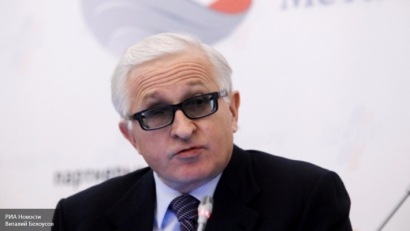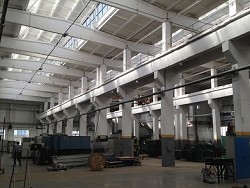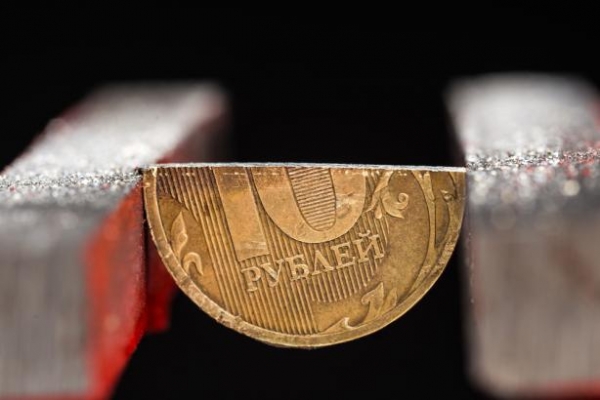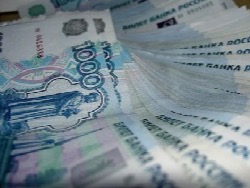Learned Russian companies for two years of life under sanctions? When the West would turn its face to Russia and start “defrosting” of relations? In any industries Ukraine, we are no longer a competitor? And why to foreign producers as important CCM? To these and other questions of the correspondent of BAFS “the Economy today” meets Alexander Shokhin, President, Russian Union of Industrialists and entrepreneurs.
 RSPP President Alexander Shokhin
RSPP President Alexander Shokhin
– Alexander Nikolayevich, what has been the impact on industry of Russia the international sanctions?
– Speaking of numbers, in 2015 the GDP was 3.7%, industrial production – by 3.4%, foreign trade turnover decreased by 33%. But, of course, economic performance is influenced not only by the sanctions.
Among the key events that influenced the economy in 2015, companies-members of RSPP has put the extension of the sanctions only on the third place after the fall of the ruble and in oil prices. Although we must not forget that in 2014, sanctions have been ranked first. In March of this year, according to a monthly survey of the RUIE crisis, the share of companies that talk about the negative impact of sanctions from the West, decreased to 7.4 %. In my opinion, such results are natural and indicate that the economy or otherwise adapted, to gradually get used to work under sanctions.
– So, not so devil as he is painted?
Not exactly. Indeed, the greatest positive impact can feel the agriculture, secure food embargo, pipe industry, has lost a competitor in the form of Ukrainian exporters of pipes, and petroleum engineering. But the mechanism of negative impact deeper and wider, since it is connected with availability of credit resources and overall funding, capital outflows, openness of the economy.
– What instruments of state support of investment now the most popular companies?
– According to multiple surveys of entrepreneurs, subsidies on loans for working capital and financing of current activities in 2015 for businesses have become the most popular tool support compared to other. And this is not surprising in the conditions, when the credit cost is more than 15% per annum. Unfortunately, in 2016 the funds for these subsidies in the Federal budget is not provided.
– What industries are directed subsidies in 2015?
– Enterprises of individual branches of industry are widely used subsidies for payment of percent on credits. This, for example, light and textile industry, chemical and timber industry, automotive industry, transport engineering, aircraft building, machine-tool industry.
What else supported the industry during the period of sanctions?
– Effective tool to support projects in the field of import substitution was the industrial development Foundation. The Fund last year approved concessional loans by 24.6 billion rubles Supported 74 projects, 22 of them are in engineering, 15 in the medical and pharmaceutical industry, 10 in the field of metallurgy and Metalworking manufacturing, 7 in the chemical industry. Also support projects for the production of energy and electronic equipment (7 projects in each sector), and projects in light industry and forestry.
Also a tool for reducing the cost of attracting investment loans through the mechanism of state guarantees and refinancing for large projects (worth over 1 billion rubles) in 2015 was the mechanism of project financing (in accordance with the decree of the government of Russia from 11.10.2014 No. 1044). Now we are discussing the possibility of reformatting in a more accessible and transparent tool.
– Tell us more about the new industry development Fund. What are the requirements for getting support? What and who it helps?
The industry development Fund is one of the most open development institutions. It provides loans for a period of 5-7 years at an interest rate of 5% per annum. At the expense of the Fund can be financed projects in the manufacturing sector aimed at introduction of modern technologies, creation of new products or the organization of import-substituting production.
The obligatory loan condition of the Fund is the collateral and co-financing from own funds of the initiator of the project, or borrowed funds in the amount of not less than half the cost of the project.
In that program the Fund supports medium projects (costing 100 million rubles) and the maximum loan amount is 300 mln. RUB. For larger projects, a special program to support consortiums of enterprises and engineering companies, in which you can get up to 500 million rubles.
Also, from 2016, a program of FER to support the establishment of a serial production machine tool products and the program “Leasing project”, which is financed from 10 to 50% of the initial premium under the contract of leasing of industrial equipment.
– What we can importozameschenie and what to not try?
– The Russian government approved and implemented the program of import substitution in 20 industries in more than 1,500 commodity items, and the efficiency and collaboration of government and business to implement them. In terms of reducing the share of imports while the most significant results demonstrated mechanical, including transport, agriculture, etc., and the pharmaceutical industry.
– Are there any barriers to import substitution at this stage?
– Actually, there is, and now everything depends not only and not so much in funding, state aid, restrictions on purchasing foreign-made products, but in business communication, coordination of efforts to organize the production of industrial raw materials and components of the required quality, the openness of Russian companies to implement new performance standards, the credibility of policy.
– Will a policy of import substitution to closeness of the country?
Such risks always exist when there are limits on competition and bureaucratic hand when the Department tries to replace the market. However, in situations where measures are a mirror of our competitors, the omission is a distortion of competition.
– Western investors are still interested in Russian market?
– Of course, sanctions could not affect the investment attractiveness of the country and this is reflected in the figures of capital flight, the withdrawal from Russia of a number of large foreign companies or sell shares in the business, freezing of joint projects. But look, gone far away some foreign investors. At the moment we can state a gradual recovery of “frozen” contacts, cooperation and investment activity.
– How can “keep” on the territory of Russia Western investors?
– This should be facilitated by a new tool – special investment contract (CCM), which allows investors (both foreign and Russian) to fix on the period of implementation of the investment project all of the conditions – fiscal, administrative, and regulatory. In addition, it guarantees the status of Russian product that gives access to the state support and participation in procurement. The latter is very important for foreign companies localizing production in Russia, such as Mazda, Klaas, DMG MORI and more than a dozen other companies already have submitted applications to the Ministry of industry and trade of Russia on the conclusion of the ACNP. A number of agreements already preparing to sign, however, the bill fixing the liability of the state on representation of tax benefits to participants in Speke, has not yet been adopted.
– Explain more about what is a SPIC?
– Speke is an agreement where the government and business act as partners, so the effectiveness of this tool will depend on the quality of performance of obligations each of the parties, which ultimately will work for the benefit of the economy and society.
– It is interesting. And as currently estimated business conditions for starting a new business in Russia?
– Every year we conduct a survey of business representatives about the business climate in Russia. It involves mainly large industrial companies from all regions of the country. The study should include a question about the height of administrative barriers to be overcome by new companies, how easy it is to start a business from scratch in a particular region. In 2015 more than half — 54.3 per cent — negatively assessed the prospects for companies wishing to start work in the area of operation of respondents, and only a quarter of respondents believe that creating new business is easy.
– What companies see the complexity?
The procedure for creating a new company in the region with the date of submission of documents for state registration to the receipt of all documents necessary for the start-up takes on the RSPP survey of 16 to 27 days. In 2014 organizations required 11 days more to complete all registration procedures, and time costs to starting a business in steady decline since 2011. And see it not just us. According to estimates from the world Bank presented the report Doing Business-2016, Russia in the indicator “starting a new business” has dropped 7 positions lower than the rating last year, at 41. All of the BRICS countries we have received the highest ratings by the start of the new business, for that matter, and the level of protection of contractual rights and property rights.








